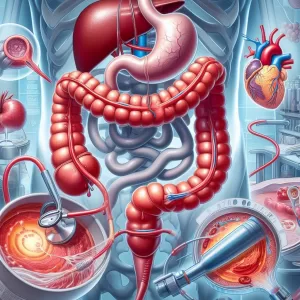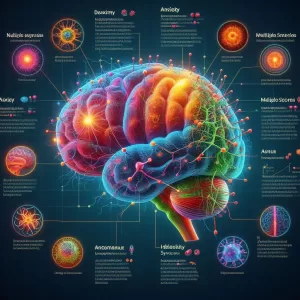What is Obsessive-Compulsive Disorder?
Obsessive-compulsive disorder (OCD) is a condition in which one has unwanted, persistent, and overwhelming thoughts and urges. These thoughts often involve unrealistic concerns or fears. Many people know that their thoughts and urges are irrational and unrealistic, but they find they can not stop them. This may lead to considerable conflicts interfering with daily life. Psychological treatment such as behavioral therapy or medication may help relieve the symptoms in most people.
Risks
Obsessive-compulsive disorder (OCD) is a condition in which one has unwanted, persistent thoughts and urges. The cause of OCD is not clear, but it is probable that a combination of a person’s personality and life circumstances combine to increase the chances of someone developing this condition. Psychological stress is a risk factor, so events such as unemployment, divorce, and a history of child abuse increase the risk of developing OCD. Around 2 out of 100 people will develop OCD during their lifetime. This condition affects men and women equally, and although it is most commonly diagnosed in early adulthood, it can affect people of any age.
Symptoms
The symptoms of OCD are obsessions and compulsions. Obsessions are persistent and invasive thoughts. Some people describe these thoughts as being ‘on loop’. These thoughts often cause worry or anxiety, even if the thoughts and fears aren’t realistic. Urges are a strong need to perform certain actions, often against one’s better judgment. These are often related to obsession. Some people find that performing the action brings them a sense of relief. Some people find that, with time, they need to perform the action multiple times before they get this sense of relief. Common urges may involve washing hands repeatedly, checking to see if appliances are turned off, closing and locking doors, but there are many possibilities. These urges and actions eventually begin to interfere with normal life as they take longer and become more complicated. People with OCD often find them embarrassing, with increases their levels of anxiety.
Diagnosis
The diagnosis is usually made by an experienced doctor or psychiatrist based on the symptoms and a psychological assessment. A person only needs to have either compulsions or obsessions to be diagnosed with OCD, though many people have both. A doctor should rule out any other possible causes of the symptoms before making the diagnosis.
Treatment
Treatment includes psychotherapy and, sometimes, medication. A psychologist or psychiatrist can help to develop strategies to recognize and break the cycle of unwanted thoughts. Medication may be prescribed to help people whose thoughts and urges interfere with their ability to start psychotherapy. Support groups can be helpful in coming to terms with the diagnosis, and in learning strategies to overcome OCD.
Prevention
A strong, reliable source of support may help people with OCD to recognize symptoms of relapse and get help before symptoms become overwhelming.
Other names for obsessive compulsive disorder
**What is Obsessive-Compulsive Disorder (OCD)?**
**Definition:**
Obsessive-Compulsive Disorder (OCD) is a mental health disorder characterized by recurrent, persistent, and unwanted thoughts, images, or impulses (obsessions) and repetitive, ritualistic behaviors or thoughts (compulsions). These obsessions and compulsions cause significant distress and interfere with daily life.
**Symptoms:**
* **Obsessions:**
* Intrusive, unwanted thoughts, ideas, or images
* Persistent and distressing
* Typically related to harm, contamination, or perfectionism
* **Compulsions:**
* Repetitive behaviors performed in response to obsessions
* Common examples include hand washing, checking, counting, and avoiding certain situations
* Typically serve as a temporary relief from anxiety
**Types of OCD:**
* **Contamination OCD:** Fear of germs or contamination, leading to excessive hand washing or cleaning
* **Harm OCD:** Repetitive thoughts about harming oneself or others, and excessive precautions to prevent it
* **Perfectionism OCD:** Unrealistic standards for performance, leading to excessive checking and redoings
* **Religious/Scrupulosity OCD:** Excessive focus on religious rules or rituals, leading to compulsive prayer or confession
* **Hoarding OCD:** Difficulty discarding physical possessions, often leading to cluttered living spaces
**Causes of OCD:**
The exact causes of OCD are unknown, but contributing factors may include:
* **Brain chemistry (serotonin imbalance):** Low levels of serotonin have been linked to OCD.
* **Genetics:** Family history plays a role in OCD, suggesting a genetic component.
* **Environmental factors:** Certain life events, such as trauma or abuse, may triggers OCD symptoms.
**Treatment:**
* **Cognitive Behavioral Therapy (CBT):** Focuses on challenging negative thoughts and changing compulsive behaviors.
* **Medication:** Antidepressants, such as selective serotonin reuptake inhibitors (SSRIs), can help manage symptoms.
* **Deep Transcranial Magnetic Stimulation (TMS):** A safe and effective treatment that uses magnetic pulses to target specific brain areas.
* **Lifestyle changes:** Regular sleep, healthy diet, and stress reduction techniques can help reduce symptoms.
**Prognosis:**
OCD is a treatable condition with proper management. With therapy and/or medication, most individuals can significantly reduce symptoms and improve their quality of life.
**Complications:**
If left untreated, OCD can lead to:
* Isolation and withdrawal from social activities
* Difficulty maintaining employment or relationships
* Increased anxiety and depression
**Key Points:**
* OCD is a mental health disorder involving intrusive thoughts (obsessions) and ritualistic behaviors (compulsions).
* It affects various aspects of life, including relationships, work, and daily routines.
* Treatment options include psychotherapy (CBT), medication, and lifestyle changes.
* With proper management, most individuals with OCD can lead fulfilling and productive lives.
2 Comments
Leave a Reply
Popular Articles








What is Obsessive-Compulsive Disorder
What is Obsessive-Compulsive Disorder